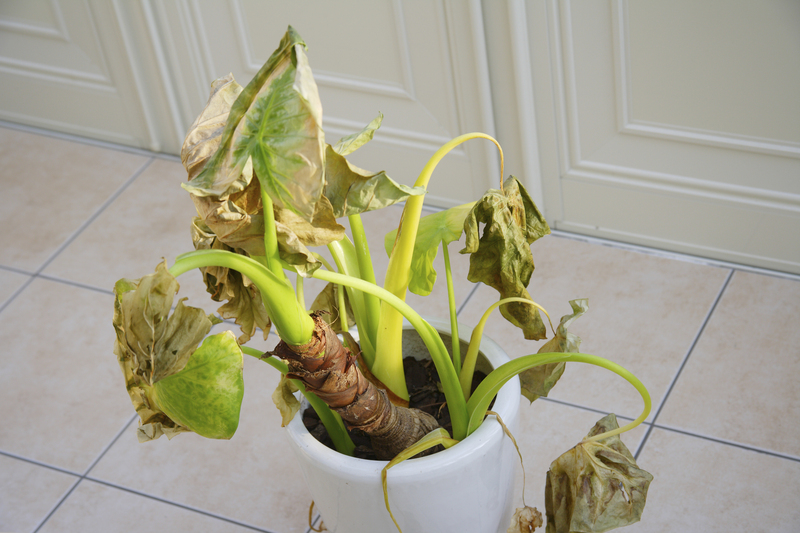Landscaping Advice: Master Mulch Use
Posted on 08/03/2025
Landscaping Advice: Master Mulch Use
Mulch is an essential component in the toolbox of any proficient gardener or landscaper. Not only does it add aesthetic value to your garden, but it also has practical benefits like moisture retention, weed suppression, and temperature regulation. Whether you're a seasoned gardener or just starting, mastering mulch use will significantly enhance your landscaping efforts.
What Is Mulch?
Mulch is any material spread or laid over the surface of the soil as a covering. It's used to retain moisture, suppress weeds, and keep the soil cool. Different types of mulch include organic materials like wood chips, straw, and leaves, and inorganic materials like plastic sheeting and gravel.

Types of Mulch
Understanding the different types of mulch is crucial for making informed decisions about which one to use. Here are some common options:
Organic Mulch
- Wood Chips and Bark: Great for ornamental gardens and pathways.
- Grass Clippings: Ideal for vegetable gardens.
- Sawdust: A byproduct of woodworking, suitable for acid-loving plants.
- Leaves: Readily available and great for reducing landfill waste.
Inorganic Mulch
- Gravel and Pebbles: Best for creating a clean, modern look.
- Plastic Sheeting: Excellent for weed suppression, though not environmentally friendly.
- Landscape Fabric: Allows water to pass through while blocking weeds.
Benefits of Mulch
Incorporating mulch into your landscaping offers numerous advantages:
- Moisture Retention: Mulch reduces water evaporation from the soil, ensuring that plant roots remain moist.
- Weed Suppression: A thick layer of mulch blocks sunlight, thus preventing weeds from germinating.
- Temperature Regulation: Mulch keeps the soil temperature stable, shielding plant roots from extreme heat or cold.
- Soil Health: Organic mulches decompose over time, enriching the soil with nutrients.
- Aesthetic Appeal: Mulch can enhance the visual appeal of your garden by providing a clean, uniform appearance.
How to Apply Mulch Effectively
Using mulch effectively involves more than just dumping it in your garden. Here's a step-by-step guide:
- Prepare the Area: Remove any weeds or debris before applying mulch.
- Choose the Right Mulch: Select the appropriate type of mulch for your specific needs.
- Apply the Mulch: Spread the mulch evenly, ensuring a depth of 2-4 inches.
- Maintain the Mulch: Replenish mulch as needed to maintain effectiveness.
Tips for Mastering Mulch Use
- Don't Overdo It: Applying too much mulch can suffocate plant roots and lead to rot.
- Avoid Mulching Against Tree Trunks: This can cause moisture buildup and decay.
- Use Quality Mulch: Poor-quality mulches can introduce pests and diseases.
- Consider Seasonal Needs: Opt for heavier mulch in winter and lighter mulch in summer.
Pros and Cons of Mulch
Like any gardening practice, mulching comes with its pros and cons:
Pros
- Moisture Retention: Helps reduce watering needs.
- Weed Suppression: Minimizes the growth of unwanted plants.
- Temperature Regulation: Protects plant roots from temperature fluctuations.
- Soil Enrichment: Organic mulches add nutrients to the soil as they decompose.
- Aesthetic Appeal: Enhances garden appearance.
Cons
- Cost: High-quality mulch can be expensive.
- Potential for Disease: Some mulches can harbor pests or diseases.
- Labor-Intensive: Mulching can be time-consuming and labor-intensive.
- Poor Drainage: Over-mulching can lead to waterlogged soil and root rot.

Conclusion
Mastering mulch use is a game-changer for any gardener or landscaper. By understanding the different types of mulch and their respective benefits and drawbacks, you can make informed decisions that will enhance your garden's health and beauty. Follow the best practices for applying mulch, and consider the tips for maximizing its effectiveness, and you'll be well on your way to creating a thriving garden environment.
Key Takeaways
- Mulch Types Matter: Choose the right mulch based on your garden's specific needs.
- Consistency is Key: Maintain mulch levels to ensure ongoing benefits.
- Balance is Essential: Avoid over-application to prevent root suffocation.
By integrating these strategies and tips, you'll be well-equipped to master the art of mulching and significantly improve your landscaping endeavors.
Latest Posts
Creating a Serene Zen Garden Oasis
Perfect Mow Timing: How Often to Trim Your Lawn?



